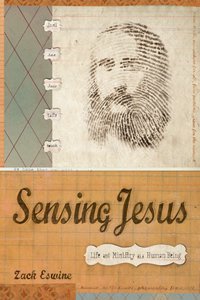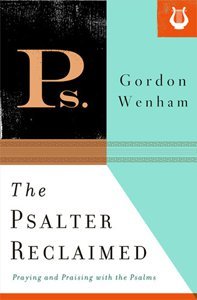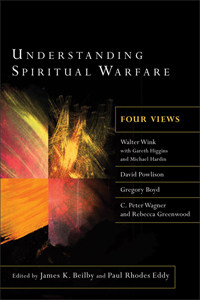I love reading books, but I also love reading reviews of books. Reviews allow me to discover books I haven’t heard of, they teach me to think wisely, they allow me to better prioritize the books I am considering reading, and they sometimes provide a helpful second opinion on books I have already read. For all of those reasons I publish occasional round-ups of reviews written by other writers. Here are a few notable links I’ve collected recently:
 Sensing Jesus: Life and Ministry as a Human Being by Zack Eswine. Reviewed by Kevin Wilkening. Here is a positive review of a new book meant primarily for pastors. “By design, this book is not a quick read. Eswine wants us to pause, to feel, to sense. His writing style forces us to slow down and steep in the concept of recovering our humanity. After spending nearly a month seeing myself in the pages of Sensing Jesus I would highly recommend it for pastors and other church leaders. It will set you free from performance-based ministry. It will remind you that you are not God, and yet you are gloriously human–just what God created you to be.” (Mike Emlet at CCEF also speaks highly of this book.) (Learn more and shop at Amazon or Westminster Books)
Sensing Jesus: Life and Ministry as a Human Being by Zack Eswine. Reviewed by Kevin Wilkening. Here is a positive review of a new book meant primarily for pastors. “By design, this book is not a quick read. Eswine wants us to pause, to feel, to sense. His writing style forces us to slow down and steep in the concept of recovering our humanity. After spending nearly a month seeing myself in the pages of Sensing Jesus I would highly recommend it for pastors and other church leaders. It will set you free from performance-based ministry. It will remind you that you are not God, and yet you are gloriously human–just what God created you to be.” (Mike Emlet at CCEF also speaks highly of this book.) (Learn more and shop at Amazon or Westminster Books)
Jesus + Nothing = Everything by Tullian Tchividjian. Reviewed by Jesse Johnson. This is a new review of a much-praised but controversial book. “The thesis of J+N=E is that the only thing required for your sanctification is to think more about what Jesus has done. That’s it. Jesus, plus Nothing, equals Everything for your sanctification. But I don’t buy that approach to sanctification. I appreciate that Tchividjian clearly described what train he was on, and shows how it gets to his destination, but at the end of the day, I did not buy the ticket, and I’m not taking the ride. I believe that in Christ we are supposed to fight, labor, battle, walk, and work—and that all these efforts are more than looking back to Christ, but they are the active obedience to the commands of Scripture. I believe salvation is monergistic (it is only God’s work), but that sanctification is synergistic, and that God will reward me for how I do my work. This is an actual theological disagreement with J+N=E, and it affects the core message of the book, so in that respect I read the book entirely though that lens.” (Learn more and shop at Amazon or Westminster Books)
 The Psalter Reclaimed by Gordon Wenham. Reviewed by Mike Leake. Leake recommends a book, despite the fact that it’s a difficult read. “Some books are like chopping up spaghetti for a two-year-old. They are really good but might be a little exhausting for the average reader. It’s not that you’ll choke on it and not be able to understand it, it’s just that you might get so exhausted that you don’t get the full benefit of the book. More experienced readers need to read these types of books and know how to ‘chop them up’ for others to enjoy. The Psalter Reclaimed is one of those books.” (Learn more and shop at Amazon or Westminster Books)
The Psalter Reclaimed by Gordon Wenham. Reviewed by Mike Leake. Leake recommends a book, despite the fact that it’s a difficult read. “Some books are like chopping up spaghetti for a two-year-old. They are really good but might be a little exhausting for the average reader. It’s not that you’ll choke on it and not be able to understand it, it’s just that you might get so exhausted that you don’t get the full benefit of the book. More experienced readers need to read these types of books and know how to ‘chop them up’ for others to enjoy. The Psalter Reclaimed is one of those books.” (Learn more and shop at Amazon or Westminster Books)
God and the Atlantic by Thomas Albert Howard. Reviewed by Carl Trueman. The best book reviews offer instruction even to those who have not read the book; Trueman’s review is a model of this. “One of the most striking differences between the USA, my adopted residence, and the UK, my homeland, is the connection between politics and religion. Back home, there is an Established Church and yet the language of religion is studiedly absent from political discourse. ‘We don’t do God’ as the chief spin doctor Prime Minister Blair once famously declared. By contrast, in the USA there is a First Amendment which prevents the federal establishment of religion and which has come to mean that there is a radical separation of church and state. Yet here the language and performance of politics is suffused with religious idioms and gestures. … This is a short, densely-written, brilliant book that deserves to be read and pondered by any who wonder why America and Europe relate to each other as they do and what the future might hold for religion in both cultures.” (Learn more or shop at Amazon)
 Understanding Spiritual Warfare: Four Views by Various. Reviewed by Nathaniel Claiborne. If you appreciate multi-view books, Claiborne suggests that you will enjoy this one. “Overall, this is a very helpful book. The introduction sets out the issues nicely, and the contributors come from a variety of positions. Rather than each being a different shade of evangelical options, only the central two positions are. Though the final position is not entirely incompatible, it represents a well-developed approach that lacks appropriate biblical foundations, which is problematic to say the least.” (Learn more and shop at Amazon or Westminster Books)
Understanding Spiritual Warfare: Four Views by Various. Reviewed by Nathaniel Claiborne. If you appreciate multi-view books, Claiborne suggests that you will enjoy this one. “Overall, this is a very helpful book. The introduction sets out the issues nicely, and the contributors come from a variety of positions. Rather than each being a different shade of evangelical options, only the central two positions are. Though the final position is not entirely incompatible, it represents a well-developed approach that lacks appropriate biblical foundations, which is problematic to say the least.” (Learn more and shop at Amazon or Westminster Books)










